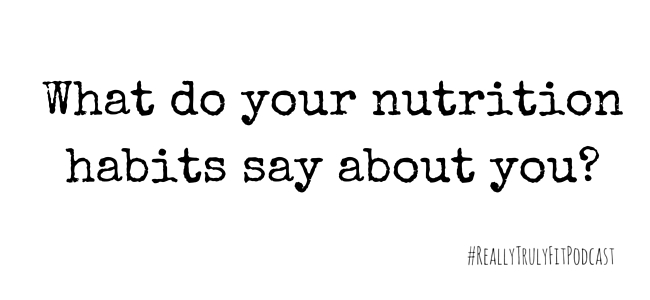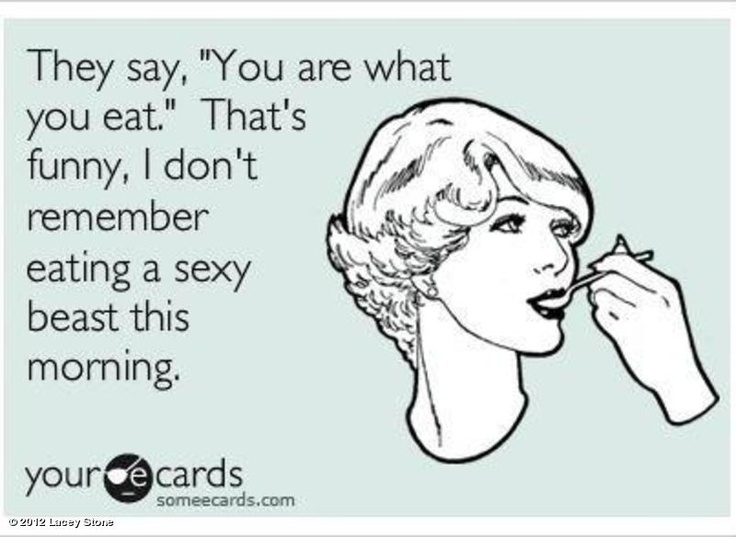You are what you eat. Our nutrition habits speak volumes about who we are. By understanding what problems influence our nutrition habits and how they can impact our health, we’re able to make changes to how we handle everyday situations to improve our success and help us reach any health, wellness, or nutrition goals we may have. Tune in to the latest Really, Truly Fit Podcast to discover your nutrition identity.
What influences our nutrition habits?
- Schedules – Busy schedules can have a major impact on how we eat. Night shifts, multiple jobs, travel can make it difficult for us to focus on making our nutrition the most important thing.
- Lifestyles – In addition to a busy schedule, sometimes our lifestyles make it difficult for us to change or improve our dietary habits. A busy family might only make a few basic meals to appease children’s taste buds but may lack variety, interesting flavor or health benefits. Or, you may be a sales consultant and driving to and from appointments all day long without an official “lunch break”.
- Moral/Religious Beliefs – Many cultures exclude certain types of food such as types of meat. Other times, moral belied can cause someone to choose not to eat various foods.
- Health Conditions – Diabetes, Celiac disease, issues with the digestive/gastrointestinal tract that can cause a physician or dietitian to suggest or encourage various dietary restrictions to help the individual become more comfortable.
Problem: "I find it difficult to make healthy decisions when I am away from home."
Solution: Know your options.
Whether you have a healthy lifestyle or you’re unaware of what constitutes for a healthy decision, understanding what makes a healthy option can help you make better choices.
- Full Service Restaurants: Can be a more desirable choice when traveling but can be more difficult to make time for. Full service restaurants have more variety and many meals are more customizable. Most restaurants offer a healthy section of their menu that are low in calories.
- Fast Food: Fast foods have begun to realize the desire of many to be healthier and have followed suit. Look for healthier, low fat options when possible and steer clear from high fat/ high sugar menu items.
- Gas Stations: If this is the only option you have, look for warm sandwiches or refrigerator sections with sandwiches or hard-boiled eggs, fruits and vegetables, or yogurts.
- Grocery Stores: Depending on what your travel restrictions are, you can look for grocery stores or small markets to get healthier options or snacks.
Problem: "I find myself snacking late at night, especially before bed."
Solution: Find ways to keep yourself feeling fuller throughout the day or change your habits at night to keep yourself away from late night grazing.
- Be sure you’re eating enough calories throughout the day. If you’ve been too restrictive on your calories throughout the day it can leave you feeling hungry and craving a midnight snack after dinner. Instead of trying to minimize your calories throughout the day, make better, more nutrition dense choices. Eat a healthy fulfilling breakfast, snacks in between meals and a healthy lunch. Don’t forget to include a snack between lunch and dinner to help curb those cravings! Some examples may include:
- 1/2 cup of cottage cheese and a piece of fruit
- 100 calorie bag of popcorn and a 1 oz. string cheese
- 1/4 cup of hummus and baby carrots
- 6 oz yogurt and 1/4 cup of high fiber cereal
- Pick a nightly snack that satisfied your cravings. Purchase a 100 calorie snack pack of your favorite items and limit yourself to eating just that one serving. Take your time and enjoy your treat.
- Change your routine. Changing your nighttime routine can help trick your mind into understanding that you’re done snacking for the night or keep you distracted. Many people brush their teeth early because they’re less likely to snack after they’ve brushed their teeth for the night. Other people might turn off the kitchen lights to indicate that the kitchen is ‘closed’ for the evening. Enjoying herbal teas without added sugar and honey might help curb cravings and keep you from snacking. You could add a new activity to your routine like an evening walk or yoga can keep your body active and keep your mind off the desire to snack.
Problem: "I tend to be emotionally driven when it comes to my food choices."
Solution: Identify what triggers your emotional eating.
- Understand how you feel. Before your start to snack, determine how you’re feeling. Are you sad, frustrated, or happy? Many people form an association between eating certain foods and their moods. Such as eating foods with high sugar content and being upset or sad. The relationship is positively reinforced when the sugary foods help boost energy levels and when they taste good.
- Keep a Journal. Keeping a journal of how you feel, what you crave, and what you eat can help you identify any problems or issues. Further understanding helps us prepare better and find alternatives and to seek out methods to fix issues and problems that we face.
- Healthy Snacks. Being emotionally driven, your body might be telling you that it’s deficient in certain foods. By putting unhealthy foods that help distract your body from the actual issue you tend to feed it unhealthy foods that don’t actually solve anything. Before you give in to unhealthy snacks, try to eat something that will help boost your energy.
- Change your routine. The same routine can become boring or help contribute to an unhappy or unhealthy emotional state. Try changing up your routine. Take a trip to visit friends, go see something new, try a new activity, or take a different type of fitness class. This can change you feel and boost positive energy.
- Seek out a Professional. If you find that you’re struggling with maintaining your happiness it might be time to seek out a professional that can help you determine the best course of action for your health and happiness. You may also want to look into scheduling an appointment with a Registered Dietitian, which is what we’re here for!
So what do your habits say about you? And more importantly, what impact do they have on your health?


